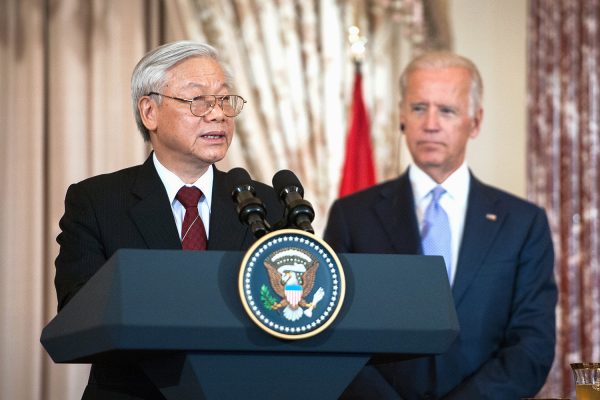
Former vice president Joe Biden has consistently led the polls, with 25 to 30 percent popular support, as well as the endorsement primary, which tracks support from prominent party members, for the Democratic presidential nomination in the United States.
The only other candidate with such a solid base is Vermont senator Bernie Sanders, but his support is under 20 percent and few elected and party officials back him.
So why are we treating Sanders’ supporters as true believers and Biden’s, as Jonathan V. Last puts it, as “just a group of voters who haven’t abandoned him yet”?
Age and education
One reason is that Biden’s supporters tend to be older and not necessarily college-educated. Young and middle-aged college graduates have an outsize influence on the media narrative.
In part because many journalists are themselves younger and college-educated.
Ryan Lizza reports that Biden made a conscious decision early in his campaign to ignore “the noisy activist left and its megaphone on social media.” That worried his (younger) advisors, but perhaps he knew better all along.
College-educated whites haven’t settled on a candidate yet, jumping from Kamala Harris to Elizabeth Warren to Pete Buttigieg.
When this group suddenly becomes enamored of a candidate, it is loud on Twitter and on MSNBC, it shows up in polling in Iowa, and it can seem like the whole race has shifted. The Biden campaign argues that this is a driving force for why many political pundits have misunderstood the race.
Race
Another factor is race. Kyle Kondik points out that Biden has strong and steady support from black voters, who are the “bedrock of the Democratic Party.”
The last Democrat to win the nomination without majority support from African Americans was Michael Dukakis in 1988, who lost the black vote to Jesse Jackson.
Majority black districts will sent a disproportionate number of delegates to the nominating convention in July:
That’s because these districts tend to be so Democratic and the Democratic rules advantage this kind of party loyalty.
Electability
I suspect a third factor is electability. I know this is a nebulous concept and sometimes code for racism or sexism, but polls have consistently found that, more than health care, jobs, income inequality and climate change, Democratic primary voters care about defeating Donald Trump in 2020.
Biden is the top choice of Obama-to-Trump voters in states like Michigan, Pennsylvania, Ohio and Wisconsin as well as Romney-to-Clinton voters in states like Arizona, Florida, North Carolina and, again, Pennsylvania and Wisconsin. Democrats need to win back the first group and avoid alienating the second with far-left policies like Medicare-for-all and decriminalizing border crossings to defeat Trump.
Many Democratic primary voters understand that. So, more than the other top-polling candidates, does Biden.
